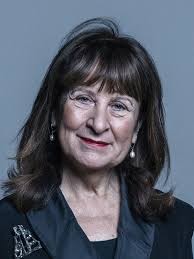Bruges Group Blog
The Remainer's Revenge
As with a party conference, a lot of the interest in the Brexit circus lies in the supporting acts and side-shows. A recent instance of the latter arose from a spat between the Government and the Justice Subcommittee of the Lords' European Union select committee. This is worth a look, if only because a serious point of principle turns on it.
When we leave the EU, among the paperwork there will be a political declaration signed by both sides dealing with future relations. Our final draft, a 26-page document of carefully opaque phrasing in the best tradition of Sir Humphrey, appeared a couple of months ago on 22 November. The addition of four words to the original draft of Article 7 of the agreement caught the attention of eagle-eyed human rights lawyers a few weeks ago. The United Kingdom's stated "commitment to the European Convention on Human Rights", giving effect to a rather insolent resolution of the EU Parliament in March 2018 demanding that we agree to remain parties to the Human Rights Convention, had become a less committal commitment "to respect the framework of the European Convention on Human Rights."
The result was a letter just before Christmas from Lord Boswell, ex-Tory wet and now crossbench member of the sub-committee, to David Gauke; a response from Edward Argar MP, Under-secretary at the Ministry of Justice saying that Article 7 meant what it said, and that the government might or might not revisit the question of the ECHR after Brexit; and a furious riposte last month from left-wing barrister Baroness Kennedy of the Shaws, chairman of the sub-committee, asking why the government had "failed to give assurances that it will not repeal or reform the Human Rights Act, which in essence incorporates the rights set out in the ECHR into domestic British law", and essentially demanding that the original draft be restored.
This is troubling, coming from a Parliamentary committee with a certain amount of influence on what appears in the final agreement with the EU. You may like or dislike the European Convention on Human Rights and the Human Rights Act 1998 that made it part of our statute law. But, as pro-Europeans and human rights enthusiasts alike repeatedly and rightly say, the Convention and the EU are separate institutions. Neither can be blamed for the real or supposed defects of the other. The European Union, contrary to the beliefs of many Leavers, has no general jurisdiction over human rights in this country; conversely, 19 of the 47 members of the Human Rights Convention are not EU member States at all. Yet we now see an attempt to create just such a connection, by demanding that we solemnly agree with the EU never to denounce the Convention or repeal the Human Rights Act, with repercussions on our future relationship should we ever step out of line.
It is not difficult to see why Baroness Kennedy's proposal must be strongly resisted. For one thing, the object of Brexit is to restore to the UK the right to decide what treaties it signs, and to the British people the right to decide democratically what legislation it wishes its Parliament to pass, without limitations placed on these powers by outside political entities – especially those, like the EU, whose commitment to democracy as we know it is less than wholehearted. it is hardly consistent with this to demand that the UK Parliament immediately surrender its power to legislate as its electors think fit, and that the UK promise not to exercise its current sovereign power to denounce the Human Rights Convention (a process that, incidentally, requires a mere six months' notice) by giving the EU a veto over such decisions. Of course this is unlikely to worry Remainer establishment figures like Baroness Kennedy. But that's another story.
It's not even as if the requirements of the European Convention had anything to do with the trading or diplomatic relationships we seek with the European Union. Just take some of the requirements of the Convention as interpreted by the European Court of Human Rights in Strasbourg. Under it we are not allowed to legislate (for example) to permit corporal punishment in state schools; to deny widows' benefits to unmarried partners; to allow newspapers to report truthfully on the perverted sexual practices of public sporting figures, or on the romantic lives of public figures; to deny voting rights as a matter of principle to prisoners; to insist that children only be adopted by heterosexual married couples; or, for that matter, to forbid abortion on principle. Whatever your views on such issues, you might be forgiven for thinking that these were matters of social policy that had, and ought to have, nothing whatever to do with the EU.
The irony, of course, is that at present they don't. Although EU member States are expected to be members of the Human Rights Convention, this is not a formal or legal requirement, and were a state to cease to be so, or to ignore the requirements of the Human Rights Court, there is not much the EU could do about it beyond self-righteously huffing and puffing (in the same way as it has done over developments it disapproves of in Poland and Hungary). By demanding that the UK accept a permanent commitment to the Human Rights Convention as the price of an agreed departure from the EU, Baroness Kennedy is actually saying that she wants the EU to have more power over this country outside it than over the remaining 27 member States within it. I'm not quite sure if there's a word for this sort of topsy-turvy thinking: but a good candidate would be The Remainer's Revenge.
Contact us
246 Linen Hall, 162-168 Regent Street
London W1B 5TB
Director : Robert Oulds MA, FRSA
Founder Chairman : Lord Harris of High Cross





